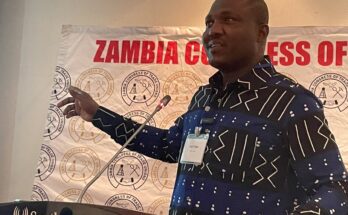Businessman and farmer, Alhaji Umar Ali, is a noted philanthropist from Yobe state. In this interview with MUSA M. BUBA, he speaks on how the humanitarian crisis in the North-east can be effectively tackled, and why government at all levels should help farmers to attain sufficiency in rice and wheat production. Excerpts:
As someone from Yobe state, one of the states afflicted by the Boko Haram insurgency, how do you think the region and its people can be rehabilitated?
Well, in the first place what happened, or still happening in the North East is quite unfortunate and regrettable. What manifested in the Boko Haram crisis is actually a combination of a number of issues and that is why the crisis is tolling on the people, leading to a large-scale humanitarian crisis.
First, there is the insurgency itself. But people forget also that there is abject poverty in this region, which is also complicated by low literacy level among our people. These are what combined to bring about the difficult situation that our people found themselves in.
Confronting these tripartite issues would require serious thinking and expert advice on lasting solutions to these problems.
You see, the insurgency has created thousands of orphans and widows. Numerous well-to-do individuals have also been made poor. There were many big farmers all over the North-east who were forced to abandon their farms.
Solving these problems, therefore, require careful study. Governments at all levels and other stakeholders need to come together to devise ways that will take ample considerations of all these and come up with practicable solutions.
Orphans, for example, have to be given proper care such that they would not turn out into nuisance for the society in the future. The women that were widowed should also be helped with skills and means to sustain themselves under their new condition.
For our traders and businessmen, the government should come up with a programme designed to rehabilitate them. Such a programme should work out a way where by these people would be categorised into three catgories of small, medium and major businessmen who should all be assisted accordingly to help them pick up the pieces of their businesses. This is important because these people are drivers of the local economies and they already have the business acumen and the contacts needed to continue on what they have always done.
We should also not forget that lack of education also helps in perpetuating poverty and dangerous undertakings. Educational pursuit should be deliberately promoted but in terms of numbers and the quality.
Youths should also be gainfully engaged, and empowered with skills. My own idea of this is to provide the youths with enabling environment to engage in farming. Government can provide them with land and farm implements and then create a sort of marketing board to buy the produce which can be sold to consumers or even exported. This way the government will kill two birds with one stone; fighting joblessness and tendency for violence, and helping the agricultural sector to grow.
Are you satisfied with what the administration of President Muhammadu Buhari is doing to help the North-east out of the current challenges?
There is no doubt that the Buhari administration is doing very well in this regard, no patriotic person from the North-east will criticize the Buhari administration. We cannot help but applaud the government on a number of issues.
When this government came in, the North-east was destabilised. Through the commitment shown by President Buhari and with the help of Allah, the situation is no longer the same. The problem is largely tackled.
In the past, people were after their lives, they don’t care about anything, not even feeding. Businesses were abandoned. Schools were shutdownand hundreds of thousands kids were made orphans. But it is a sign that peace now reigns that people are going back to their houses and thinking of how to engage in economic and social activities. We have to thank God and the president for that.
Secondly, and quite importantly, the North-east has never had it so good in terms of participation in governance at the national level. We have unprecedented number of key appointees from our region.
Particularly, the president has his chief of staff from North-east. The secretary to government of the federation, the chief of army staff, the chief of air staff, the National Security Adviser are all from the North-east and President Buhari brought those people close to advise him on tackling the crisis in our area, and I think they are doing justice to that assignment, from what we are witnessing.
The federal government’s agricultural policy seeks to make Nigeria self-sufficient in rice and wheat, as a farmer, how realistic do you think this vision is?
I think Nigerian farmers have capacity to make that a reality, if the will of the government is translated into cogent implementation. The present administration has shown its willingness to bump the agricultural sector but you know it is one thing to have fine policy in paper and it is another thing for all the people along the chains of implementation to allow that to translate into concrete action.
I believe if our farmers would be provided with the right support; seeds and farm implements to ease off the work and fertiliser is provided in good time, I think within two years we can attain that target. Already Nigerians have bought into the government’s back to the farm campaign. Places with dams and oter water bodies are already showing the promise in terms of yielded recorded in the last two years.
States that are blessed with river basins and dams should come out to actively support their farmers to utilise those natural resources for the good of the country. There can also be inter-state collaborations, we have seen the example in the partnership between Kebbi and Lagos states. Lagos invested in Kebbi, when it got the produce it took the rice back to the state and sold it to the people at affordable prize.
That is the spirit; it is also a win-win situation for the two states. So, I can tell you that attaining sufficiency is possible with the right policies in place. We have done it the past with groundnut, cotton and cocoa, it can be replicated if all involved demonstrate enough seriousness.
You are a water professional by virtue of your business interests and philanthropic activities know a lot about the water crisis in the North-east. How serious is this problem and how do you think it can be tackled?
Yes, water problem has long been with us in the North-east and it seems to resist all attempts made by various governments in the respective states to solve the lingering problem, over the years. It is sad that at this age, and despite all the resources and technology at our disposal, people take untreated water from ponds and streams. This should not be acceptable by every stretch of imagination.
Honestly, there should be a serious study on how to solve the water crisis in the North-east. And I think solving this issue, which to be is a humanitarian problem, should not be left to governments alone. Individuals and corporate organisations should come in to undertake corporate social responsibility and philanthropic projects around this problem. A lot of people are without access to potable water and they need to be assisted either by drilling boreholes or earth dams that can solve such issues for communities, especially in remote areas.
This water crisis is not only a problem for the immediate communities, it affects a lot of other people that are even faraway from those areas. For example, parts of reasons for the current spate of farmers/herdsmen conflict is this water scarcity in places like the North-east. Herders have to travel to where they can tend for their herds and in the process conflicts erupts.



